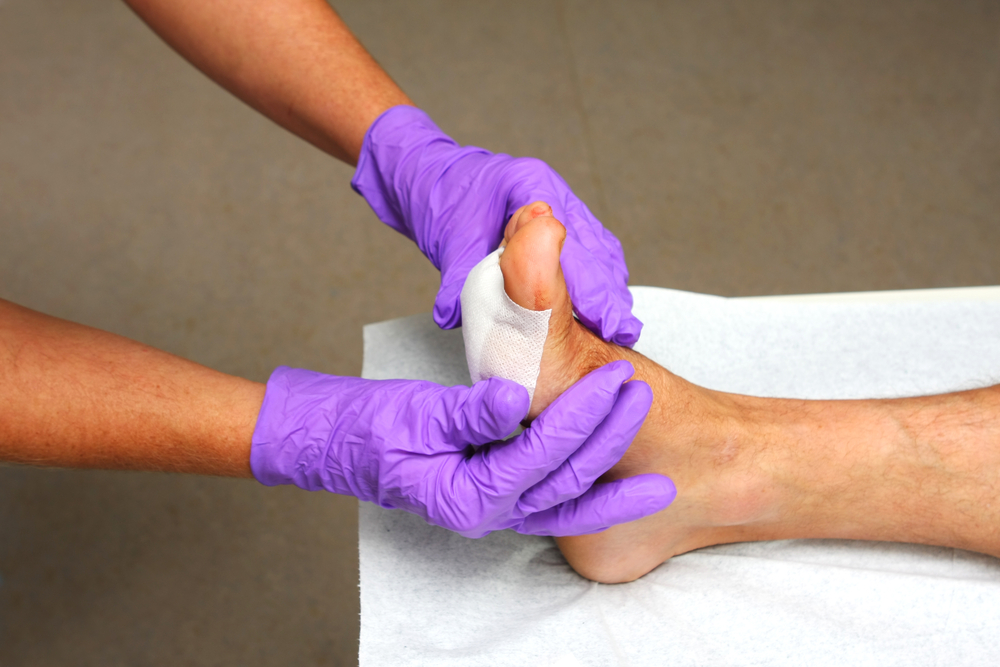 Wounds take time and attention to heal, especially when they are on the foot. Similar to injuries known as bedsores, wounds on the bottom of the feet are constantly under pressure. This pressure slows the healing process, because blood flow is weakened. Keeping pressure off the wound is essential in order to get the blood flowing back into the foot and facilitate the healing process. This can be done in easy ways, such as sitting or laying down. Standing directly on a wound probably causes some discomfort anyway, so giving it time to breathe is important. If you have an open wound on your foot and have additional questions, then it is recommended that you speak with a podiatrist to learn about the proper treatment options.
Wounds take time and attention to heal, especially when they are on the foot. Similar to injuries known as bedsores, wounds on the bottom of the feet are constantly under pressure. This pressure slows the healing process, because blood flow is weakened. Keeping pressure off the wound is essential in order to get the blood flowing back into the foot and facilitate the healing process. This can be done in easy ways, such as sitting or laying down. Standing directly on a wound probably causes some discomfort anyway, so giving it time to breathe is important. If you have an open wound on your foot and have additional questions, then it is recommended that you speak with a podiatrist to learn about the proper treatment options.
Wound care is an important part in dealing with diabetes. If you have diabetes and a foot wound or would like more information about wound care for diabetics, consult with Dr. Richard DiMario from Maine. Our doctor will assess your condition and provide you with quality foot and ankle treatment.
What Is Wound Care?
Wound care is the practice of taking proper care of a wound. This can range from the smallest to the largest of wounds. While everyone can benefit from proper wound care, it is much more important for diabetics. Diabetics often suffer from poor blood circulation which causes wounds to heal much slower than they would in a non-diabetic.
What Is the Importance of Wound Care?
While it may not seem apparent with small ulcers on the foot, for diabetics, any size ulcer can become infected. Diabetics often also suffer from neuropathy, or nerve loss. This means they might not even feel when they have an ulcer on their foot. If the wound becomes severely infected, amputation may be necessary. Therefore, it is of the upmost importance to properly care for any and all foot wounds.
How to Care for Wounds
The best way to care for foot wounds is to prevent them. For diabetics, this means daily inspections of the feet for any signs of abnormalities or ulcers. It is also recommended to see a podiatrist several times a year for a foot inspection. If you do have an ulcer, run the wound under water to clear dirt from the wound; then apply antibiotic ointment to the wound and cover with a bandage. Bandages should be changed daily and keeping pressure off the wound is smart. It is advised to see a podiatrist, who can keep an eye on it.
If you have any questions, please feel free to contact our office located in York, ME . We offer the newest diagnostic and treatment technologies for all your foot care needs.